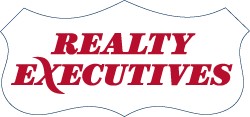
Buying a new home can be a smart and satisfying financial goal. Is becoming a homeowner for the first time or finding your next dream home one of your heart’s desires? Aiming for a big picture strategy and breaking your plan into steps over time can help make your homeownership goals a reality. If you don’t see yourself making a move for quite some time but know you’d like to buy a home down the line, following are proactive steps you can take sooner rather than later, along with some ideas to keep in mind.
1. Get Your Financials In Order
Buying a home is a huge financial investment that requires planning and commitment.
Credit Score
Checking your credit score early in the process is an important step. When you apply for a loan or are looking into a mortgage for your new home, one of the first things lenders will check is your credit score. You don’t want to be surprised, stalled, or have a loan rejected because of factors impacting your credit score that you could start tackling now.
If you’re based in the United States, you can check out all three of your credit reports free of charge from AnnualCreditReport.com. If you’re based in Canada, you can go to the two national credit bureaus, Equifax Canada and TransUnion Canada.
Checking on your credit score in the beginning stages — when you are only thinking about buying a home — will allow you to take a proactive approach if you are looking to considerably improve your credit score. Doing so will put you in a much better position when it comes to applying for a home loan.
When you start the process early, you can also begin to pay off other debts you might have, whether that is other loans, credit cards, etc. This will free you up to put more of your energy and money towards the new home instead of being limited by older debts.
Research
You’ll also want to take the time to thoroughly research mortgages and home loans that are right for you. Not all loans are created equal: there are varying interest rates, stipulations, repayment plans, and other factors to consider. Keep your long-term plans, your income, and your family situation in mind. Choosing a loan officer and real estate agent early on will connect you to some of the best resources and most up-to-date information so you can better understand your options.
Understanding the types of personal and financial information you’ll most likely need to have on hand when the time comes to start a serious home search will help you get organized and stay one step ahead of the process rather than scrambling to track down important documents.
Start Saving
Beginning to save for a down payment as soon as possible can make what might otherwise feel like a major cost become a much more achievable goal. Depending on your mortgage, you’ll be required to pay a minimum down payment. This is where connecting with your real estate and mortgage industry professionals in advance can help you get a good estimate of what your price range and actual down payment might be. Having a clear dollar amount in mind can help you budget early in order to reach your goal over time.
Smart Spending
Be sure that you don’t make any other large purchases before taking out a home loan. You’ll want to avoid major spending throughout the home closing process as well. If you aren’t sure what might make a negative impact, consult your home loan professional ahead of time so you can plan expenses accordingly. Taking on other hefty payments will not only stretch your finances thin, it can also make it harder for you to get approved for a loan or close the deal.
Some important, larger purchases of course cannot be put off forever. As you begin to search for the perfect house, knowing how much home you can afford can help you stick to your limits and better plan for other major expenses you may want to budget for in the years to come, such as auto payments or new furniture.
2. Research Potential New Living Areas
Moving to a new home can often mean moving to an entirely new area, new city or across the country.
If you have kids, you’ll likely want to do some research on the schools in various areas you’re considering moving to. School district boundary lines may rise to the top of your list as the deciding factor for the neighborhood you ultimately choose.
Another important thing to consider is your potential new neighborhood’s proximity to your work. Think about how long your commute would be from various areas and whether it is economical to travel from your new home’s area to your workplace. You should also know whether you would have access to public transportation or whether you would depend on having a car.
Some other things to research are the population size and the general feel of areas you’re considering moving to. Is having a bustling town important to you? Do you want to live somewhere that offers a lot of things to do? Or are you more content in a small, quiet town?
These are all important questions to ask yourself and other members of your household well before you are ready to make an offer on a new home or decide on a new neighborhood.
3. Prepare Your Home for the Move
Before you buy a new home, you have to think about the one you’re in now!
Make an imminent move easier on yourself and your family by getting rid of any clothes, household items or belongings that you don’t need or use anymore. This means less stuff to pack and move later, which means less stress for you.
This is especially true if you’re planning on downsizing your living space. You don’t want to move into a house and literally not have room for all of your stuff. Be smart about what you really need and what can be given away. Decluttering is a process you can start early and may also make your current living arrangement more enjoyable.
If you already own a home, outlining what you’re going to do with your current home once you are closer to making your next move is another proactive step your can take. Are you going to sell your current home? Rent it out? A local real estate expert can help you sort through your options. Planning in advance will make it easier to focus on buying a new home when the time comes.
This post is intended for informational purposes only and should not be taken as professional advice. The point of view and opinions expressed in this post are those of the author and do not necessarily reflect the position of Realty Executives International.
This post was written for Realty Executives by Elliot Walsh. Elliot is a dual-degree graduate from the University of Rochester with a B.S in Cell Biology and a B.A in English Literature. He is a full-time freelance writer from Boston, specializing in veganism, humor, and health. His articles have appeared in The Rival Rochester and his work experience can be found here: www.linkedin.com/in/ewalsh17.







